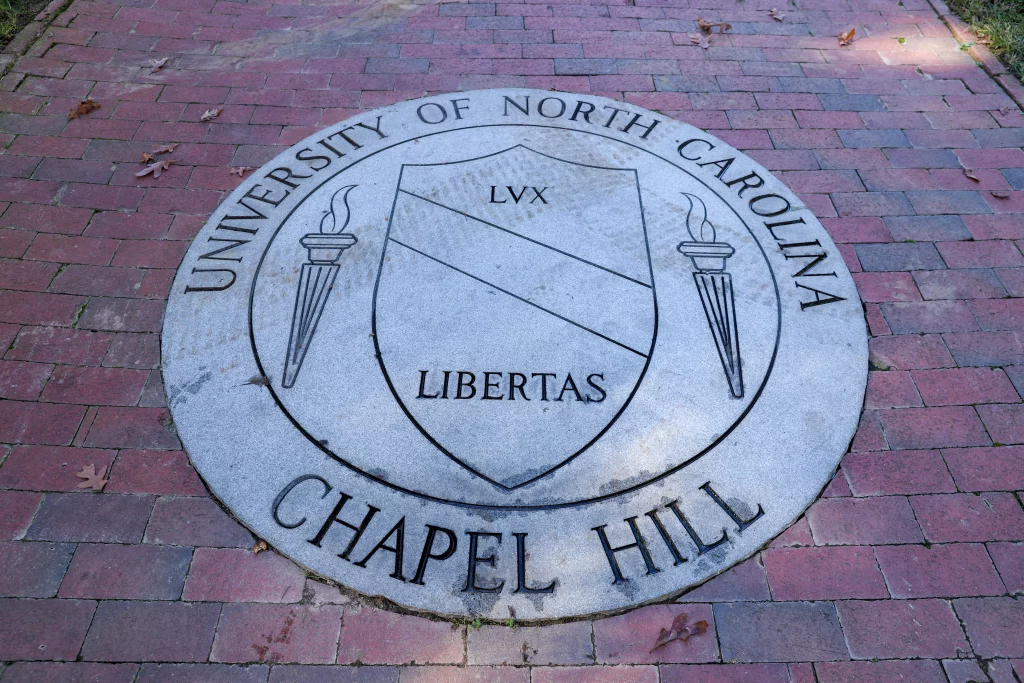Back to Blog
The Case for Teaching Students Constructive Dialogue at Scale: UNC’s New School of Civic Life and Leadership
 At the recent Stanford Academic Freedom Conference, the subtext of the discussion was a debate about how to fundamentally fix the university. One speaker viewed universities’ academic freedom issues as fixable, whereas another saw the problems as beyond repair with the only solution being the creation of new alternatives ensuring free speech and viewpoint diversity for college students and faculty. Both models are on display everywhere: Groups like Heterodox Academy (HxA) and FIRE look to change from within, while University of Austin (UATX) and Ralston are building new institutions for brighter futures.
Based on my experience at the University of North Carolina at Chapel Hill (UNC), I am in the camp that believes universities are fixable if their leadership is willing to understand they have a problem and take action before it is too late. UNC has recently taken a number of actions to improve academic freedom, free expression, and constructive dialogue on campus, including:
At the recent Stanford Academic Freedom Conference, the subtext of the discussion was a debate about how to fundamentally fix the university. One speaker viewed universities’ academic freedom issues as fixable, whereas another saw the problems as beyond repair with the only solution being the creation of new alternatives ensuring free speech and viewpoint diversity for college students and faculty. Both models are on display everywhere: Groups like Heterodox Academy (HxA) and FIRE look to change from within, while University of Austin (UATX) and Ralston are building new institutions for brighter futures.
Based on my experience at the University of North Carolina at Chapel Hill (UNC), I am in the camp that believes universities are fixable if their leadership is willing to understand they have a problem and take action before it is too late. UNC has recently taken a number of actions to improve academic freedom, free expression, and constructive dialogue on campus, including:
- FIRE green light rating (2015)
- Faculty adoption of the University of Chicago free speech statement (2018)
- Program for Public Discourse (2019)
- Free expression and constructive dialogue research (2019 and 2022)
- FIRE ranking: 26th out of more than 200 universities (top 15%) (2022)
- Trustee adoption of the University of Chicago Statement and Kalven Report (2022)
- Faculty resolution on the Right and Duty of Faculty Members to Speak Freely and the Duty of the University to Protect Faculty Speech (2022)
- The formation of the Chancellor’s Committee on Academic Freedom and Free Expression (2023)
- The launch of a Heterodox Academy Campus Community called Heterodox Heels (2023)
Constructive Dialogue in Education
Universities do a good job recruiting intelligent people and teaching them how to research subjects and argue their positions well. In fact, perhaps we do it too well. As Musa al-Gharbi states in his article, Navigating Moral Disagreements: “In fact, the more intelligent, educated, or rhetorically skilled one is, the less likely it becomes that someone will change their minds when confronted with evidence or arguments that challenge their priors.” It seems that, in the polarization wars, universities may be the arms suppliers. Particular to UNC, we have research on our undergrads that illustrates there is clearly a need for students to be able to speak with and understand the positions of those who disagree with them:- 35% of students are concerned about their peers’ reactions if they express their sincere political beliefs.
- Almost 20% of students self-censored in class more than once.
- 11% of students were willing to report a student who said something that offended them, and 20% wanted to fire a professor who did the same.
- Almost 75% of liberal students think their conservative peers are racist, and 94% of conservative students think liberal undergrads are condescending.
- 35% of liberal students are unwilling to have a conservative as a friend, and almost 20% of conservative students do not want liberal students as classmates.
Faculty Concerns
Many UNC faculty were understandably concerned when they first heard of the new offering, as some felt that they had not been consulted, that the trustees had created this without faculty input, and that the new faculty being hired would be conservatives. However, UNC chancellor Kevin Guskiewicz stated unequivocally in a meeting with faculty that a political litmus test would not be a hiring criteria. Instead, he said, the program is an extension of the work of the Program for Public Discourse, is in pursuit of UNC’s focus on promoting democracy (a key priority of the UNC’s strategic plan), and will be built with faculty input. Our provost, Chris Clemens, made clear that this was something that had been proposed from within the university. He went on to say that UNC is an ideologically diverse campus and we need the ability to speak to one another constructively. Furthermore, he pointed out that constructive dialogue is not a Left or Right issue, or a conservative or liberal issue, and that America’s first public university should lead on democracy by enabling our students to engage in civic life. The need is clear. Research shows students not only need constructive dialogue skills but also demand them. UNC alumni identify constructive dialogue as a crucial skill. UNC’s new curriculum has a place for it. Moreover, it’s the logical next step in UNC’s drive toward intellectual excellence. While it’s not clear the exact form the new “School” may take, it is necessary and will give UNC students the skills they need to be productive citizens going forward.Related Articles
December 29, 2025+Nicole Barbaro Simovski
great minds don't
always think alike
Make a Donation
Your generosity supports our non-partisan efforts to advance the principles of open inquiry, viewpoint diversity, and constructive disagreement to improve higher education and academic research.